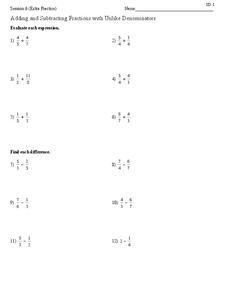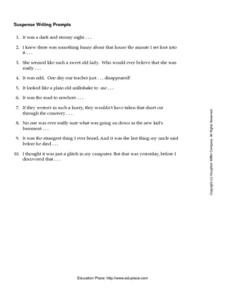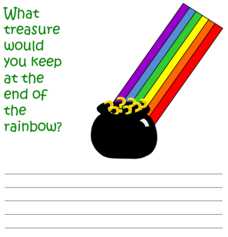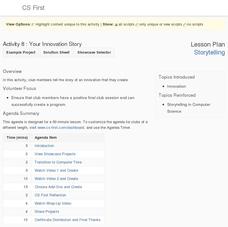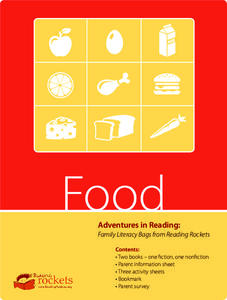Curated OER
Goodnight Mini-Book
When little ones just start to read, it is important to provide texts that support basic skills development. Provide a printable mini-book that reinforces literacy development with simple CVC words and repetition.
Curated OER
How Many in My Home?
Engage young mathematicians in practicing their counting skills while learning a little about the home environment of your learners with this simple worksheet. By asking students to determine the number of windows, doors, rooms, people,...
Film English
We've All Been There
What does empathy look like? Encourage your pupils to put themselves in another person's shoes with several writing and discussion activities that relate to a featured short film. Over the course of the lesson, individuals collaborate...
Springfield Public Schools District 186
Adding and Subtracting Fractions with Unlike Denominators
Fractions are your learners' best friend in this simple learning exercise that has room to show work as learners practice adding and subtracting fractions with unlike denominators.
Houghton Mifflin Harcourt
Suspense Writing Prompts
"I don't know what to write about!" How often have you heard that lament? Here's a list of 10 prompts that provide a starting place for suspense stories.
K12 Reader
The Magic Egg
A butterfly? A dragon? A golden fairy? Young writers create a tale about a magic egg, its contents, and what happens next. No yoke.
Curated OER
Finish the Snowman: Tell the Story
Using pictures and words young writers create a story about a snowman decorated with "funny things."
Curated OER
Using Prefixes, Suffixes and Root Words to Improve College Level Vocabulary
Grow vocabulary skills with an understanding of affixes and word roots. Included here are a few activities and plenty of materials you can use to support your learners as the focus on building vocabulary.
Houghton Mifflin Harcourt
Home Sweet Home: English Language Development Lessons (Theme 5)
Through grand discussion, picture cards, and poems, enhance language proficiency with a Home Sweet Home themed unit created to support English language development. Each lesson follows a listen, speak, move, and/or look routine that...
NASA
Melting Ice: Designing an Experiment
Sometimes, despite the best laid plans, the unexpected will occur. Learners witness this firsthand as they carefully design an experiment to determine the time needed for ice to melt in salt water or pure water. They uncover facts not...
Super Teacher Worksheets
Spelling Test Nightmare
What do you do when faced with a bully? Scholars answer this question when presented with a scenario regarding two learners and their spelling test grades. They take part in a grand conversation that leads to problem solving and sorting...
Curriculum Corner
Writing Prompts
Stretch scholars' writing muscles with an assortment of narrative writing prompts set to the theme of, You won't believe what happened to me!
DLTK
St. Patrick's Day Creative Writing Prompt
Celebrate St. Patrick's Day and encourage creativity with a writing prompt. Young scholars to compose a narrative that details what they would keep at the end of a rainbow.
Classics for Kids
"Mars" from The Planets
Gustav Holst's The Planets provide young musicians an opportunity to examine how composers can create a suite: a collection of smaller pieces grouped to explore a single topic. After listening to "Jupiter," they examine "Mars" in detail,...
PhysEdGames
Animal Relays
Run like a lion! As the teacher calls out an animal, one person from each team runs to the cone at the opposite end of the gym like the animal that was called. Then run back and high-five the next person in line signaling them to go....
Beyond Benign
Intended Occupants
Here's a lesson you can really build on! Middle schoolers describe the occupants of an imaginary house during a character-building lesson. They create a cast of characters who share living space and provide details about their attitudes,...
Google
Storytelling: Your Innovation Story
Explore a trailblazing way to talk about innovation. Using the Scratch coding program, young computer scientists create innovations and write stories to accompany them. They include some of the add-ons they mastered throughout the unit.
Reed Novel Studies
Jacob Have I Loved: Novel Study
Twins always have double the fun, right? Sara, in Jacob Have I Loved, always is in the shadows of her twin sister. Scholars identify synonyms, answer comprehension questions, foreshadow, and create alliterations as they read about how...
Council for Economic Education
The Neolithic Agricultural Revolution
What effect could one person's invention have on the human race? In the case of the Neolithic Agricultural Revolution, small improvements in farming methods led to increased food production. The human population began to boom, leading us...
EngageNY
Grade 10 ELA Module 4: Unit 2, Lesson 10
Is it better to be dead than to "dwell in doubtful joy," as Lady Macbeth suggests in Act 3.2 of Shakespeare's Macbeth? Using the resource, scholars work in small groups to discuss how Lady Macbeth and Macbeth begin to unravel following...
American Battlefield Trust
Civil War Overview: Elementary Lesson Plan
How do you teach the Civil War and all its intricacies within the time limits of an average school day? Using a three-part plan, teachers easily integrate coverage of key Civil War battles into the unit. The lesson includes activities to...
National Woman's History Museum
The Path to Women’s Suffrage
The Path to Women's Suffrage unit focuses on how Western Expansion was instrumental in gaining women the right to vote through the Nineteenth Amendment. Young historians analyze maps, examine primary source documents, and create a...
Center for History Education
Did Southern Free Men of Color Fight for the Ideals of the South?
Much of history is distasteful. Primary sources often reveal attitudes acceptable at the time that no longer are. But to understand controversial historical events, historians must examine primary sources that represent a wide variety of...
PBS
Reading Adventure Pack: Food
An activity packet about food begins with reading two texts: Stone Soup by Marcia Brown or John Muth and Where Does Food Come From? by Shelley Rotner and Gary Goss. Learners then take part in three activities. They design a puzzle...
Other popular searches
- Creativity and Imagination
- Sociological Imagination
- Imagination & Creativity
- Imagination Theme
- Drama Imagination
- Imagination Writing
- Imagination and Art
- Map Imagination
- Imagination Characters
- Dr. Seuss and Imagination
- Imagination Lesson Plans
- Poetry and Imagination





